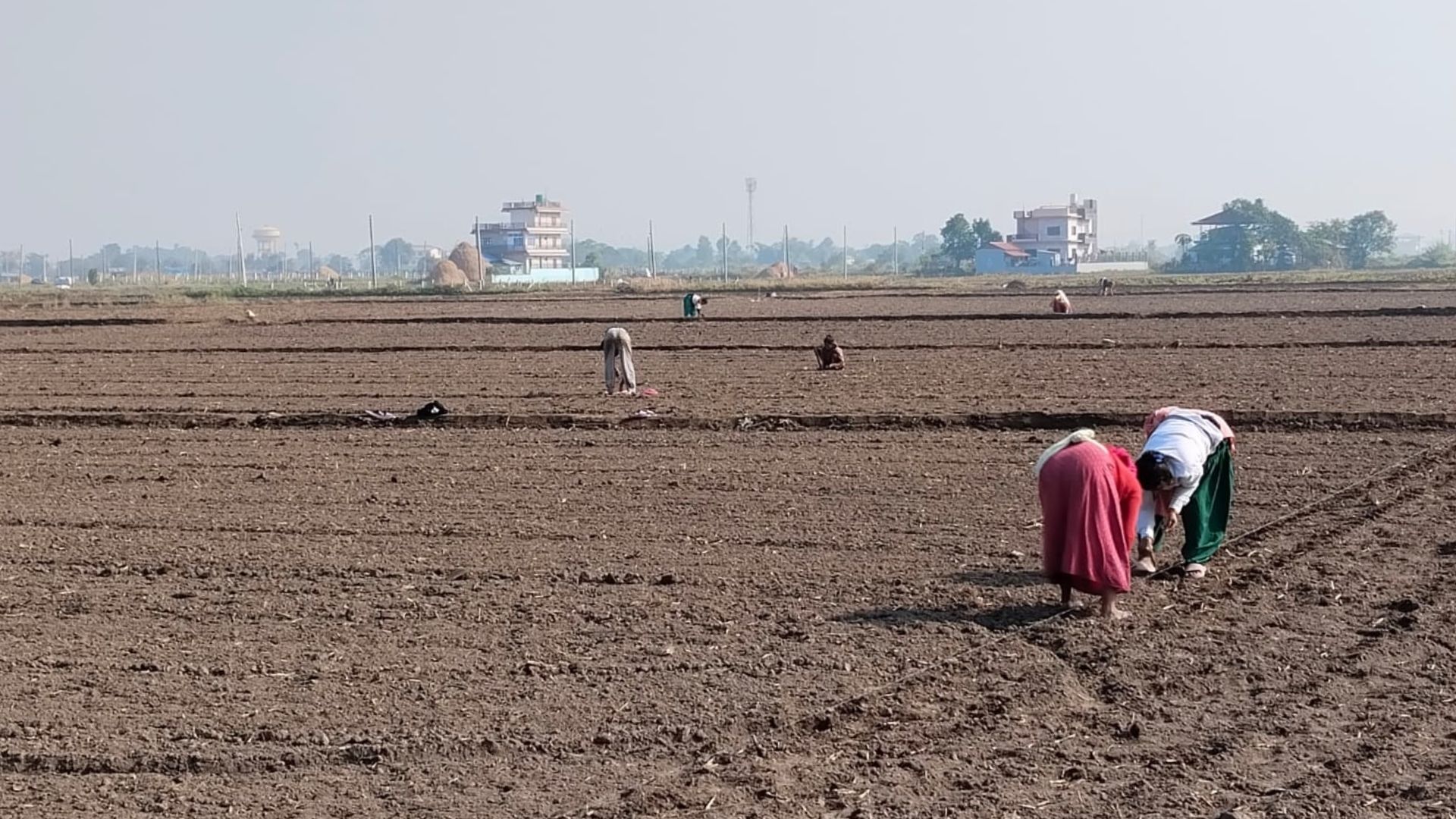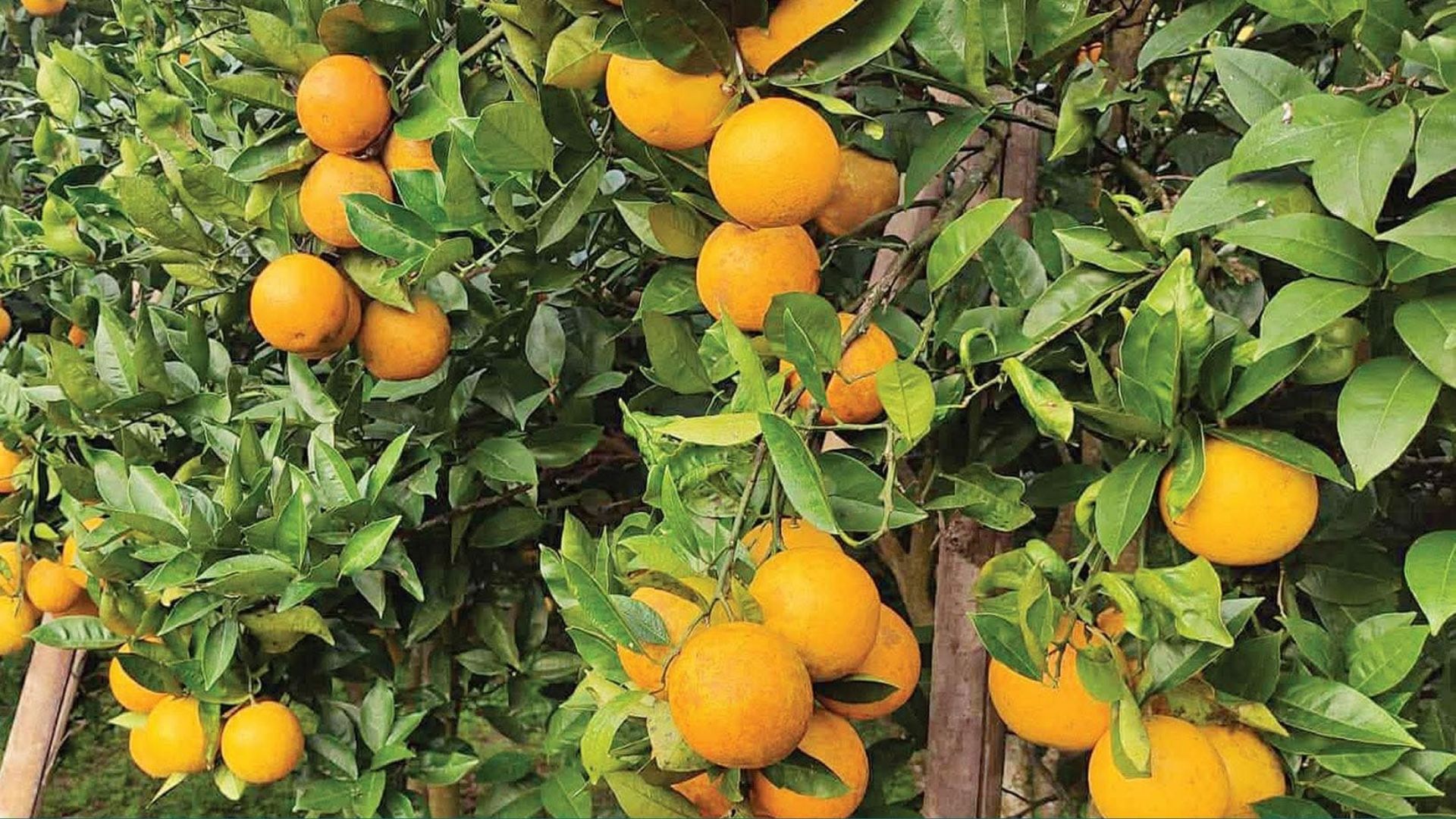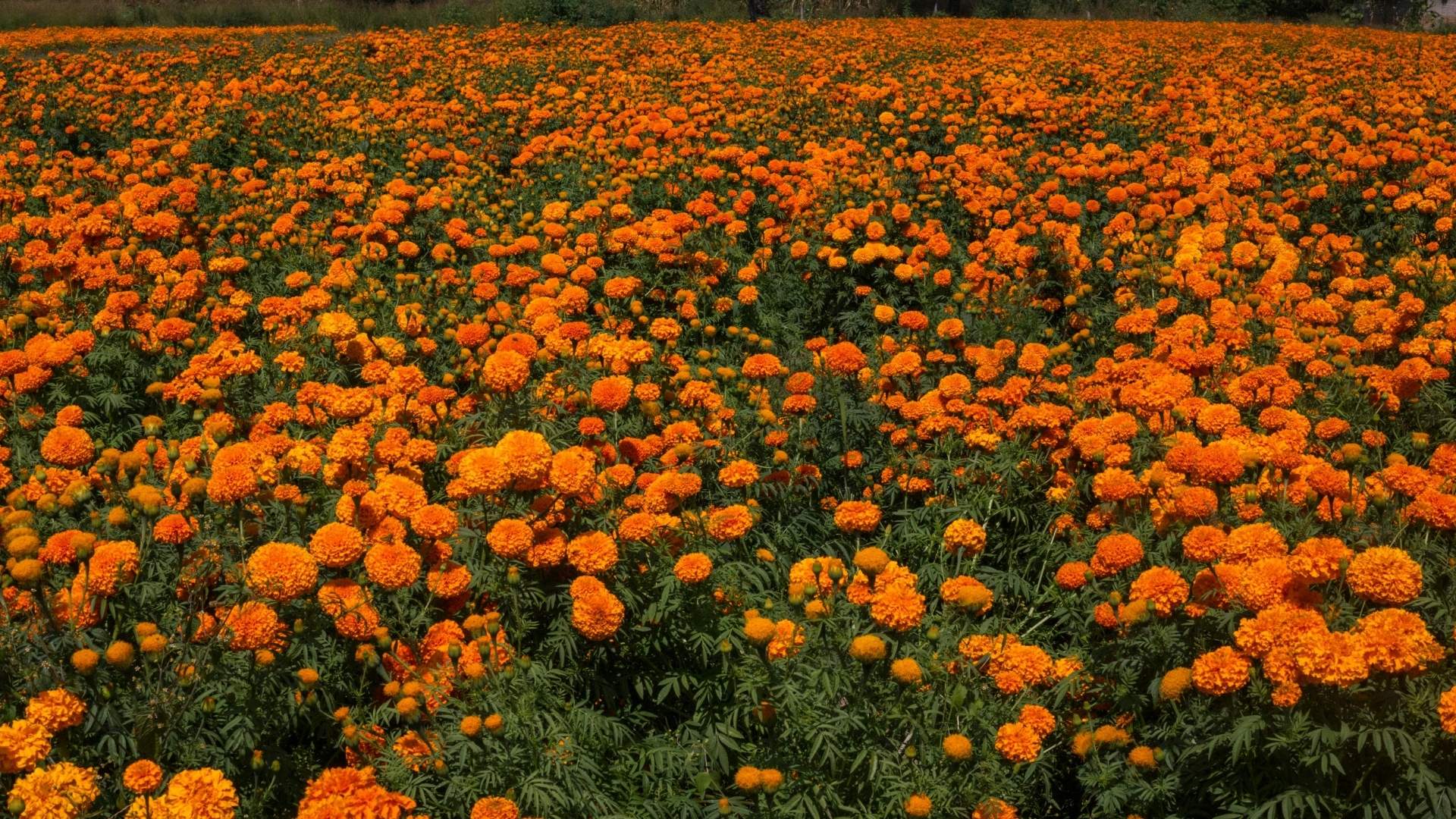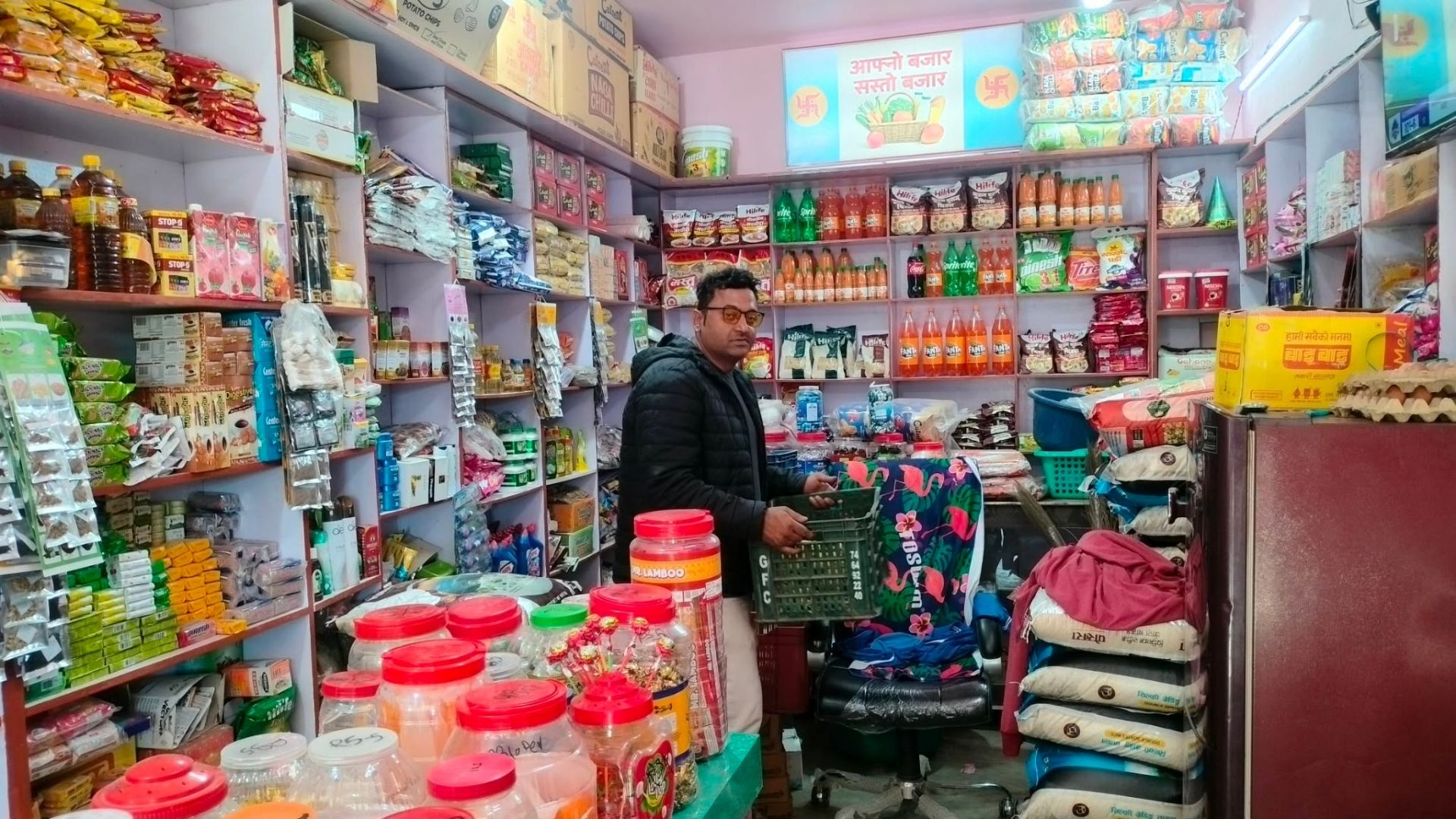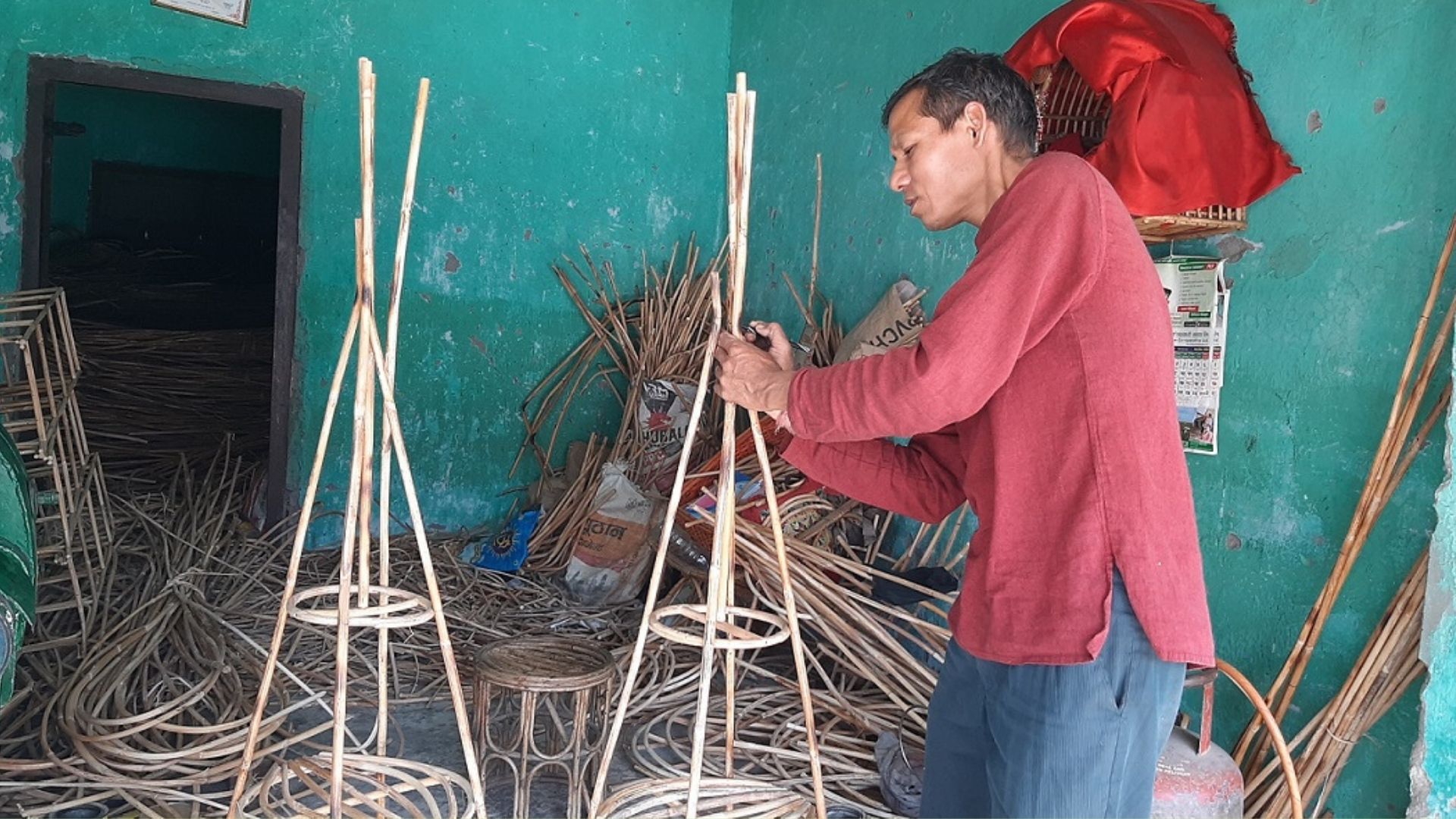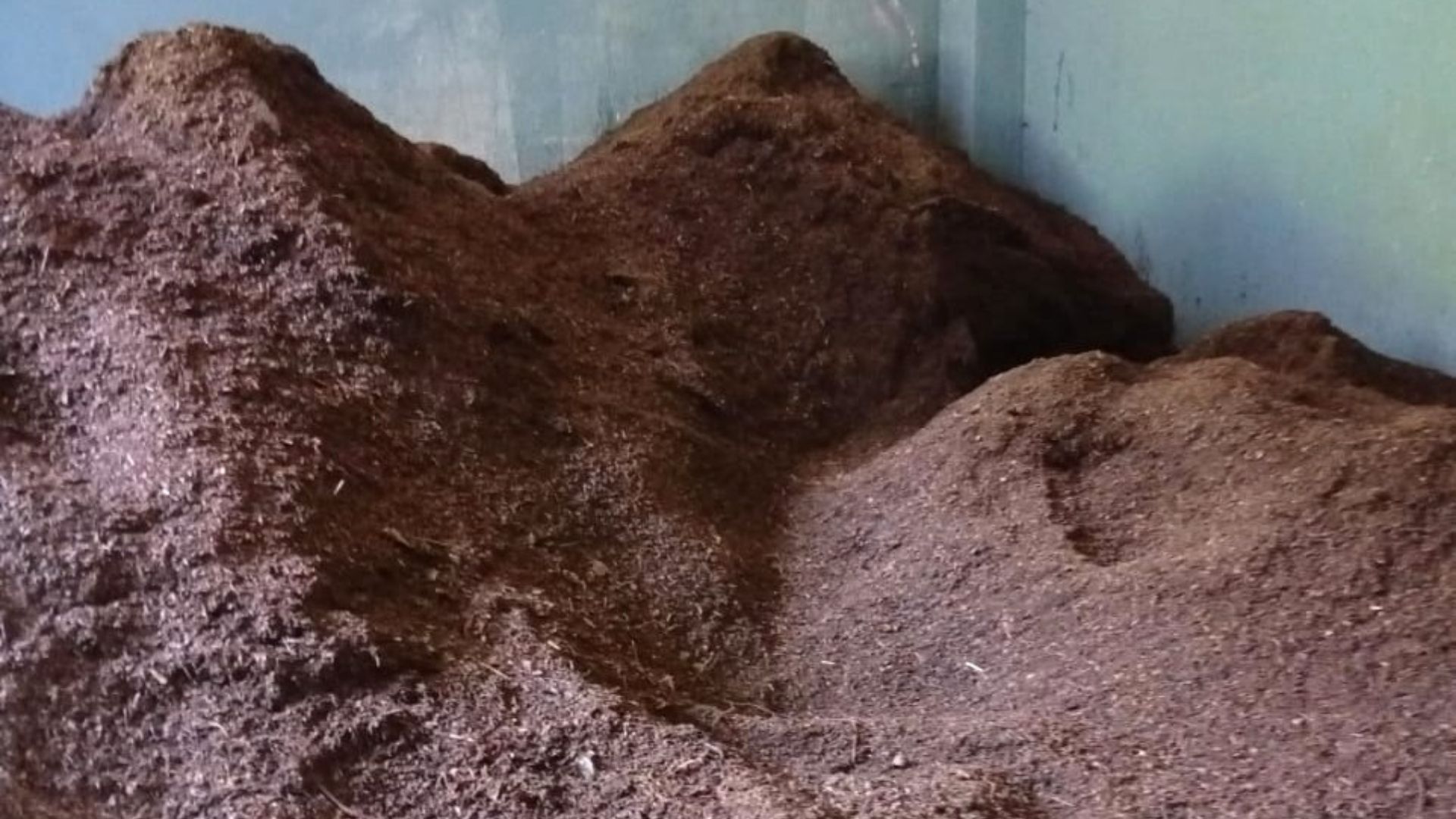Sabitri Paudel, a resident of Deurali in Ribdikot Rural Municipality–2, plans to earn over NRs 500,000 this year from farming Akbare chili, a premium variety of chili pepper. After facing recurring troubles from wild animals, she turned to Akbare as an alternative crop. As of the first week of Bhadra (mid-August), she has already sold 300 kg of chili worth NRs 66,000 and expects to earn an additional NRs 450,000 from the remaining harvest.
Sabitri cultivates Akbare chili on five ropanis of land, with the active support of her husband Sandip Paudel, who returned from working three years in Malaysia and one and a half years in Dubai. “He came back determined to start something in our own village. Now, both of us are fully engaged in chili farming,” said Sabitri. She credits the Prime Minister Agriculture Modernization Project (Zone) for providing essential farming inputs, technical support, and help in marketing the produce through cooperatives.
Similarly, Baburam Adhikari, also from Deurali, has been engaged in commercial agriculture for the past three years. As of early Bhadra, he has sold four quintals (400 kg) of chili worth NRs 88,000. Having spent years in India, Adhikari made NRs 500,000 last year solely from agricultural produce and aims to surpass that amount this year through chili farming.
“It’s possible to earn NRs 500,000 to NRs 700,000 annually by working hard right here in the village,” said Adhikari. “There’s no need to go abroad just to make money. In India, even with earnings of around NRs 200,000 a year, saving anything was difficult. But now, I can easily earn NRs 400,000 to NRs 500,000 annually while staying home.” He noted that chili prices this year are 1.5 times higher than the previous two years. “Not only are prices better, but selling has become easier since prices are predetermined,” he added.
Another farmer, Sunil Bik, has also been cultivating Akbare chili for the past three years. Last year, he sold chili worth NRs 500,000, and this year, he aims to sell around NRs 400,000 worth. So far, he has sold chili worth NRs 200,000.
It’s not just Paudel, Adhikari, and Bik — 97 farmers in this ward alone are making impressive earnings from Akbare chili farming. Within two months, more than NRs 980,000 worth of chili has been exported from the ward. A total of 4,457 kg (44.57 quintals) of chili was collected and shipped outside by the Devisthan Multipurpose Cooperative between the Nepali months of Shrawan and early Bhadra.
According to cooperative manager Khimbahadur Gharti, farmers produced 3,390 kg of chili in Shrawan and 1,067 kg in the first week of Bhadra. This year, the cooperative aims to export 500 quintals of chili. While Akbare was previously collected from the Harthok Collection Center, since last year, farmers have been selling directly through the Devisthan Cooperative. Last year, 3,400 kg of chili was exported from the area.
With grants for seeds, plastic tunnels, irrigation pipes, pond construction, and technical support from the Zone Office, farmers have been increasingly drawn to chili farming. Farmers have reported annual incomes ranging from NRs 100,000 to NRs 1,000,000 from chili cultivation.
The Zone has been providing agricultural equipment at subsidized rates to encourage block farming of Akbare chili. Ganesh Prasad Yadav, Chief of the Zone Office and Senior Agriculture Officer, stated, “What began as an encouragement has now turned into a commercial success. Farmers here are producing chili with great enthusiasm.”
Support has been ongoing throughout the rural municipality for the past three years. Field-level technical assistance is also being provided. Initially, low production due to lack of technical knowledge has now improved thanks to regular consultations, said Agriculture Officer Saroj Pokharel. He expects increased production this year compared to the last.
“Previously, farmers grew chili in open fields, leading to weed and pest issues, which reduced yield. This year, we encouraged them to adopt mulching, which has helped reduce such problems and improved production,” said Pokharel. Farmers were also unaware of planting distances, appropriate pesticide use, and micronutrient application, but technical support has now helped boost productivity.
According to Information Officer Bhimsen Nepal from the Zone, there are no marketing issues for chili. “Farmers bring their produce to the cooperative, which then supplies it to the market,” he said. Krishna Prasad Paudel, chairperson of the Devisthan Multipurpose Cooperative, added that earlier, farmers faced serious problems due to lack of market access, but now, thanks to cooperative involvement, they are fully motivated to pursue commercial farming.
The Zone not only provides subsidies but also conducts regular monitoring, which has encouraged farmers to adopt chili farming. The cooperative has an agreement with Yashoda Food Company for consistent supply, according to Secretary Bhimlal Adhikari. “Farmers bring the chili to us, and we immediately send it to the company — there’s no market problem at all,” he said.
In Deurali alone, 200 ropanis of land are currently under Akbare chili cultivation. Farmers are selling their chili at NRs 220 per kg through the cooperative. According to Ward Chair Om Prakash Pokharel, the ward office has also prioritized agriculture, allocating NRs 900,000 for agricultural programs this fiscal year. “We will plan programs based on farmers’ needs, in coordination with the Zone,” he said. “Since the Zone is currently focused on chili, we will work in other areas.”
Not just in Deurali, but across all eight wards of Ribdikot Rural Municipality, over 1,500 farmers are earning well from Akbare chili. While the area was previously known for ginger cultivation, farmers are now making substantial income from chili. It’s estimated that NRs 60 million to NRs 100 million (6–10 crore) in cash flows into the local economy annually from Akbare chili alone. With improved seed supply, irrigation, and technical knowledge, Akbare farming could expand even further.








